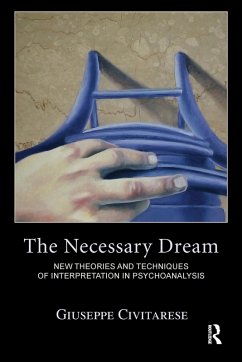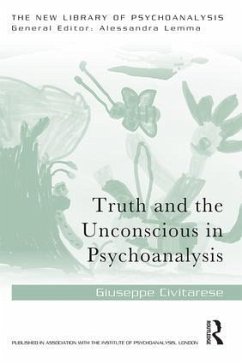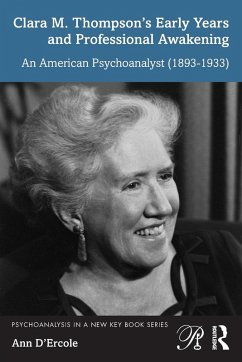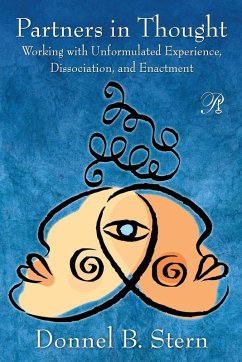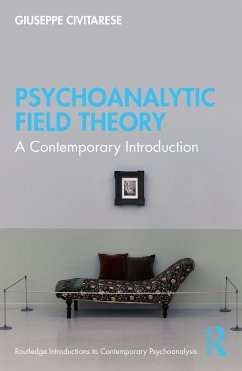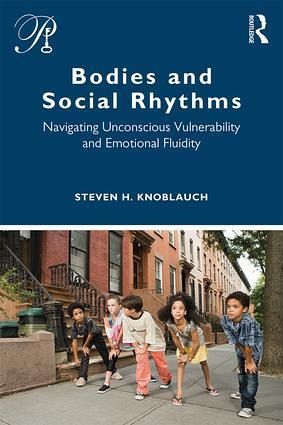
Bodies and Social Rhythms
Navigating Unconscious Vulnerability and Emotional Fluidity
Versandkostenfrei!
Versandfertig in 6-10 Tagen
37,99 €
inkl. MwSt.
Weitere Ausgaben:

PAYBACK Punkte
19 °P sammeln!
This exciting new book traces the development of an unfolding challenge for psychoanalytic attention, which augments contemporary theoretical lenses focusing on structures of meaning, with an accompanying registration different than and interacting with structural experience. This accompanying registration of experience is given the term 'fluidity' in order to characterize it as too fast moving and unformulated to be symbolized with linguistic categorization.Expanding attention from speech meaning to include embodied registrations of rhythm involving tonality, pauses and accents can catalyze a...
This exciting new book traces the development of an unfolding challenge for psychoanalytic attention, which augments contemporary theoretical lenses focusing on structures of meaning, with an accompanying registration different than and interacting with structural experience. This accompanying registration of experience is given the term 'fluidity' in order to characterize it as too fast moving and unformulated to be symbolized with linguistic categorization.
Expanding attention from speech meaning to include embodied registrations of rhythm involving tonality, pauses and accents can catalyze additional and often emotionally more significant communications central to the state of the transactional field in any psychoanalytic moment. This perspective is contextualized within recognition of how cultural practices and beliefs are carried along both structural and fluid registrations of experience and can shape emotional turbulence for both interactants in a clinical encounter. Experiences of gender, culture, class and race emerging as sources of conflict and mis-recognition are engaged and illustrated throughout the text.
This book, part of the popular "Psychoanalysis in a New Key" book series, will appeal to teaching and practicing psychoanalysts, but also an increasing volume of therapists attending to embodied experience in their practice and drawn to the practical clinical illustrations.
Expanding attention from speech meaning to include embodied registrations of rhythm involving tonality, pauses and accents can catalyze additional and often emotionally more significant communications central to the state of the transactional field in any psychoanalytic moment. This perspective is contextualized within recognition of how cultural practices and beliefs are carried along both structural and fluid registrations of experience and can shape emotional turbulence for both interactants in a clinical encounter. Experiences of gender, culture, class and race emerging as sources of conflict and mis-recognition are engaged and illustrated throughout the text.
This book, part of the popular "Psychoanalysis in a New Key" book series, will appeal to teaching and practicing psychoanalysts, but also an increasing volume of therapists attending to embodied experience in their practice and drawn to the practical clinical illustrations.





